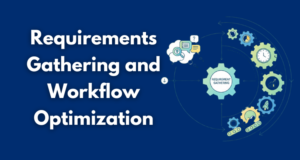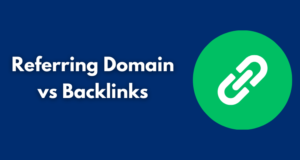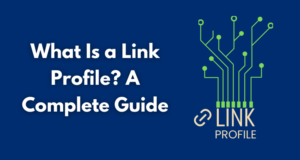Table of Contents
ToggleI. Understanding the Basics of SEO: A Foundation for Your Internship
Hello aspiring writer! Are you stepping into the exciting world of SEO content creation through your internship? Fantastic choice! Before you dive into creating the next viral blog post or crafting the perfect website copy, you need a solid foundation in SEO basics.
Think of it as learning the ABCs before writing a novel. Let me walk you through it in a way that’s easy to digest—promise, no jargon overload here!
1. What is SEO, and Why Does it Matter?
SEO stands for Search Engine Optimization. Simply put, it’s the art and science of making content rank high on search engines like Google. Imagine your content as a treasure chest filled with valuable information. SEO is the map that leads users to your treasure. Without it, your incredible blog might stay hidden on page 10 of search results, where no one ventures!
Good SEO helps your content stand out, improves visibility, and attracts the right audience. During your internship, you’ll encounter terms like search intent, organic traffic, and click-through rate—don’t worry, all will become clear with time!
2. Crawlers, Algorithms, and What Makes Google Tick
Here’s the deal: Google (and other search engines) uses little bots called crawlers to scan web pages. These bots assess your content, considering factors like relevance, quality, and structure. Then, they use complex algorithms to decide where your content ranks in search results.
The goal? To help users find the most helpful, trustworthy, and engaging content for their needs. If your content ticks those boxes, search engines will love you!
3. The Pillars of Strong SEO Content
To ace SEO content writing during your internship, focus on these fundamental elements:
- Relevance: Always write with your target audience in mind. What are their problems? What questions do they need answered? Your content should cater to their needs.
- Quality: Gone are the days of stuffing keywords without purpose. Today, search engines prioritize well-written, valuable content.
- Structure: Organize your content with clear headings, bullet points (like these!), and concise paragraphs. This not only helps readers but also makes your content easier for crawlers to digest.
4. SEO as an Ongoing Learning Journey
SEO isn’t a “set it and forget it” skill—it evolves constantly! Algorithms change, user preferences shift, and new tools emerge. During your internship, stay curious! Read industry blogs, experiment with different strategies, and don’t hesitate to ask your mentor for guidance.
5. Actionable Tips to Start Strong
Here are a few steps you can take to hit the ground running:
- Research the Basics: Start with resources like Google’s SEO Starter Guide or blogs from renowned SEO experts.
- Practice Keyword Research: Use tools like Google’s Keyword Planner or Ubersuggest to experiment with finding popular terms related to your topic.
- Study Competitors: Look at high-ranking pages for topics you’ll write about. What are they doing well? Take notes and apply the techniques that resonate.
- Ask for Feedback: During your internship, treat every piece of feedback as a growth opportunity. It’s the quickest way to sharpen your skills.
By mastering the basics of SEO, you’ll not only impress your internship supervisor but also set yourself up for long-term success in the content game. So, start small, stay curious, and remember—SEO is your content’s best friend. Happy learning!
II. Writing for Both People and Search Engines: Striking the Right Balance
Have you ever read a blog post and felt like it was written strictly for robots? Or, maybe, you’ve come across a beautifully penned article that had little chance of being found on Google? This is where the art of writing for both humans and search engines comes in. And yes, it’s a balance, but not an impossible one to achieve. Let’s chat about how you can become a pro at it during your internship.
Why Writing for Dual Audiences Is Crucial
Remember this one golden rule: readers are your ultimate audience, but search engines are the bridge that gets them there. If you only write for search engines, stuffing keywords everywhere and neglecting readability, your content will turn users away. On the other hand, if you ignore SEO principles, your wonderful prose might never reach anyone. During your internship, mastering this balance is a skill that will set you apart.
Tips for Writing for People
Let’s start with the human side of this. After all, no matter how sophisticated algorithms become, content is ultimately consumed by people. Here’s how you can make sure your writing resonates with them:
- Focus on Clarity: Use simple, concise language that’s accessible to a broad audience.
- Include a Conversational Tone: Write like you’re having a friendly chat with your reader (exactly like we’re doing here!). It makes everything more relatable.
- Provide Value: Your content should solve a problem, answer a question, or entertain. Always ask yourself, “What’s in it for the reader?”
- Engage Your Audience: Use rhetorical questions, anecdotes, or examples to keep people hooked.
Tips for Writing for Search Engines
Now that we’ve covered the people-pleasing part, it’s time to appease our robot overlords (a.k.a. search engines). Don’t worry, it’s much easier than it sounds! Here’s how to make sure your content performs well on the SERPs (search engine results pages):
- Use Keywords Strategically: Place keywords naturally in your text, including in headings, subheadings, and image alt text.
- Be Organized: Break your content into chunks with subheadings and bullet points (like this one!) for better readability and SEO.
- Don’t Forget Links: Add internal links to related pages on your website and external links to credible sources.
- Think Long-Form: Search engines love in-depth content. Aim for 1,000 words or more, where appropriate, without adding fluff.
How to Strike the Perfect Balance
This is where the magic happens—but it requires a thoughtful approach. Here’s the secret: prioritize readers first, then optimize for search engines. Always write your content with your audience’s needs and interests at heart. Then, during your editing phase, weave in those SEO best practices like keyword placement, meta descriptions, and structured formatting.
And don’t shy away from using tools! Platforms like Yoast SEO or Clearscope can guide you in ensuring your content plays nicely with search engines, all while keeping it readable and engaging for people.
Pro Tip for Interns
Practice makes perfect! During your internship, ask for feedback on your writing. Find out if your content is resonating with both your audience and ranking well in search engines. That constructive input will be invaluable as you master this dual-audience approach.
Striking the right balance may feel tricky at first, but stick with it. Every savvy SEO writer had to start somewhere, and your internship is the perfect playground for developing this skill.
III. Selecting the Right Keywords Without Overloading Your Text
Keywords are at the heart of SEO content writing. They’re like the threads that weave your content into the web of search engine queries. But here’s the deal – choosing the right keywords while keeping your content natural and enjoyable to read is an art. Overloading your text with keywords can not only alienate your readers but also earn you penalties from search engines. So, let’s explore how you can master this delicate balance during your internship.
What Are Keywords, and Why Do They Matter?
Keywords are the words or phrases people type into search engines when they’re looking for information. Think of them as a bridge that connects what people are searching for with what your content provides. But it’s not just about finding the most popular terms and stuffing them everywhere. Search engines, like Google, are way smarter now. They value context and understand related concepts too!
How to Choose the Right Keywords
Let’s talk strategy! Selecting keywords doesn’t have to be intimidating. Here’s a simple process to get you started:
- Think like your target audience: What would they search for if they wanted to find your content? Put yourself in their shoes!
- Use keyword research tools: Tools like Google Keyword Planner, SEMrush, or Answer The Public can help you discover high-impact keywords related to your topic.
- Focus on relevance: Don’t select a keyword just because it’s popular. Ensure it aligns with the content you’re creating.
- Look for long-tail keywords: Instead of targeting “SEO,” aim for more specific phrases like “SEO keyword research for beginners.” These are often less competitive and more targeted.
Quality Over Quantity: How to Use Keywords Effectively
Having chosen the right keywords, the next step is to integrate them without overloading your content. Remember, SEO isn’t just about pleasing search engines – your readers come first! Here are a few tips:
- Use keywords naturally: Write for humans, and incorporate keywords where they make sense in your sentences. If it feels forced, leave it out.
- Target multiple placements: Sprinkle your keywords in important sections, like:
- Title
- Headings
- Main text
- Meta descriptions
- Alt text for images
- Don’t ignore synonyms and related terms: Search engines understand semantic relevance, so mix it up with keywords that align with your main term!
- Beware of keyword stuffing: Using a keyword too many times can tank your content’s quality and raise red flags for search engines.
Practice Makes Perfect
During your internship, you’ll likely experiment with different keyword strategies. This is your chance to learn what works best! Pay attention to the feedback you receive, and keep an eye on tools like Google Analytics to measure your keyword performance. Over time, you’ll develop an intuitive sense of how to use keywords with skill and subtlety.
IV. Crafting Headlines and Meta Descriptions That Grab Attention
Ah, crafting the perfect headline and meta description — it’s like creating a first impression for your content! These elements may seem small, but trust me, they’re powerful tools for driving traffic to your webpage. Let’s dive into how you can make them shine during your internship.
Why Are Headlines and Meta Descriptions So Important?
Think of your headline as the spark that ignites curiosity and your meta description as the teaser that seals the deal. Together, they tell both audiences and search engines what your page is about. Poorly crafted headlines or vague meta descriptions? Potential visitors might just scroll past your page. But with attention-grabbing, clear phrasing? They’ll want to click!
Tips for Writing Headlines That Stand Out
Writing catchy headlines isn’t just about being bold — it’s about connecting with your readers while being searchable. Here’s how you can do both:
- Prioritize clarity over cleverness: Your headline should clearly convey what your content is about. If people have to guess, they’re less likely to click.
- Use power words: Words like “Ultimate,” “Secrets,” or “Essential” can add punch. For example, “The Ultimate Guide to Social Media SEO” intrigues readers by promising them value.
- Include keywords: A good headline should reflect what users are searching for. Sprinkle in those keywords naturally!
- Keep it concise: Search engines often cut off headlines longer than 60 characters. Stick to the sweet spot!
Heads-up for interns: Practice makes perfect. If at first your headline sounds too bland or stuffed with jargon, don’t get discouraged. Write a few drafts and test different options to find what works best.
Perfecting Meta Descriptions That Drive Clicks
While headlines may grab attention, meta descriptions convince users to take the next step. A meta description acts like a mini sales pitch — and guess what? It has a character limit too. The ideal length? Around 155–160 characters.
- Be descriptive but concise: Tell users exactly what value they’ll get by clicking through to your page. For example, “Learn how to write compelling SEO content that boosts rankings and engages readers.”
- Avoid keyword stuffing: Instead, weave your main keyword naturally into the description. It keeps things authentic and readable.
- Add a call-to-action (CTA): Actionable phrases like “Read more,” “Find out how,” or “Explore ways to grow” encourage clicks.
- Make each meta description unique: Copy-pasting the same generic description across multiple pages can hurt your SEO. Customize it for every piece of content!
Remember, both your audience and Google cherish relevance and clarity. So, write meta descriptions that feel natural and aligned with the content on the page.
Putting It All Together
If you’re interning where SEO content is a focus, take ownership of your headlines and meta descriptions! Think of them as your key to standing out in a crowded room full of content. And hey, here’s a pro tip: tools like CoSchedule Headline Analyzer or Moz’s Preview Tool can help polish your efforts.
By using the strategies above, crafting stellar headlines and meta descriptions will soon feel like second nature to you. Solid practice during your internship will set the stage for mastering even more advanced SEO techniques down the road. Go ahead — take a bold, creative step, and let your words do the magic!
V. On-Page Formatting Techniques to Enhance Content Visibility
Hey there! So, let’s dive into a super important aspect of SEO content writing—on-page formatting. Think of it like dressing up your content to make it not only attractive but also functional for search engines and your readers. Trust me, nailing this can make a huge difference in your SEO game. Let’s break it down, step by step, so you can get started right now.
1. The Beauty of Structure: Use Headings Wisely
Headings are more than just page decorations. These are your best friends when it comes to organizing your text. Using H1, H2, and sometimes H3 tags creates a natural hierarchy. Here’s the golden rule: make sure each page has only one H1 (usually your title) and use H2s and H3s for your subtopics. Search engines read these tags like a table of contents, helping them understand the main ideas and themes of your content.
2. Short and Sweet Paragraphs, Please
Big chunks of text can feel overwhelming, don’t you think? Always aim for short, digestible paragraphs. Each paragraph should ideally be two to four sentences long. This way, your readers won’t feel bogged down, and search engines will have an easier time parsing the text.
3. Make Friends with Bullet Points and Lists
Lists aren’t just for grocery shopping! They’re amazing tools to organize information in a way that grabs attention. For example:
- Break down complex ideas into simple steps
- Highlight important points (just like I’m doing!)
- Keep things visually appealing and easy to scan
When you use lists—whether numbered or bulleted—you’re letting your readers skim your content quickly, which is a huge plus.
4. Don’t Forget to Use Bold and Italics
Ever skimmed an article to pull out the most critical bits? That’s why using bold and italics strategically can add personality and guide readers to key takeaways. However, don’t overdo it—it’s all about finding balance so your page doesn’t feel chaotic.
5. Maintain Mobile-Friendliness
Let’s be real; most of us are guilty of consuming content on our phones. So, it’s vital your formatting works beautifully on smaller screens. Use enough white space to keep content readable. When in doubt, preview your content in both desktop and mobile views before hitting publish. This little habit can save the day!
6. Anchor Text: Link it Like a Pro
Internal and external linking is essential, but how you anchor that link (the clickable text) matters. Use descriptive anchor text instead of “click here.” For example, “Learn more about SEO strategies” is way better than just saying “click here.”
In Conclusion: Dress Your Content for Success!
Think of on-page formatting as giving your content some “bling.” It not only improves readability but also tells search engines you care about quality. With a little practice, you’ll master these techniques and see how they can transform your SEO writing during your internship. The secret sauce is consistency—keep improving, and soon it will become second nature to you!
VI. Making Use of Analytics and Insights to Strengthen Your Writing
Welcome to the exciting world of Analytics and Insights! It might sound technical at first, but trust me, leveraging data to improve your content writing is actually super empowering. Think of it as having a cheat code for success. When you’re crafting SEO-optimized content during your internship, analytics tools are your best friend, revealing what works and what doesn’t. Let’s explore how to make this fun and effective!
What Are Analytics and Insights?
First off, let’s break it down. Analytics tools (like Google Analytics, SEMrush, or other platforms) collect data about how people interact with your content. Insights, on the other hand, involve understanding this data and applying it to make improvements. It’s like detective work for your writing—you get clues on audience behavior, likes, dislikes, and how they found you in the first place. Exciting, right?
Key Metrics to Keep an Eye On
Now, you don’t need to become a data scientist overnight. Focus on a few core metrics to start:
- Organic Traffic: This shows how many visitors find your content through search engines. It’s a great indicator of your SEO practices.
- Bounce Rate: This tells you how many people leave after viewing only one page. A high bounce rate might mean your content isn’t engaging enough or not meeting the audience’s expectations.
- Time on Page: If people spend more time on your page, it’s a sign that your content is holding their attention. Bravo!
- Keyword Performance: Look at which keywords are driving traffic and whether you’re ranking high for them. This is golden info to refine future writing.
Using Data to Strengthen Your Writing
Now that you’ve gathered your data, it’s time to act on it. Here are some steps you can take:
- Revamp Underperforming Content: If certain posts aren’t attracting traffic, analyze why. Maybe it needs stronger keywords, better structure, or a fresh update.
- Double Down on Popular Topics: Got a blog post that’s crushing it? Create more content on similar topics or offer a deeper dive into that subject.
- Experiment with Formats: If you notice longer time spent on listicles or “How To” guides, sprinkle these styles into your writing arsenal.
Embrace A/B Testing
Ever heard of A/B testing? It’s an experiment where you create two versions of your content (or just headlines, for example) and see which one performs better. For instance, you could test different meta descriptions to find out which attracts more clicks. Internship projects often give you room to try things out, so take this as a green light to get creative while sticking to data-driven decisions!
Tools You Should Explore
If you’re new to analytics, don’t sweat it. Start simple and gradually up your game. Here are beginner-friendly tools to dive into:
- Google Analytics: The OG of website analytics. It offers a treasure trove of data with an easy-to-use interface.
- Google Search Console: Perfect for tracking keyword rankings and performance directly from Google’s point of view.
- Yoast for WordPress: If your company uses WordPress, Yoast is a fantastic plugin to guide your SEO efforts in real-time.
Your Takeaway
Learning to use analytics and insights isn’t just about improving your content—it’s about becoming a confident, data-savvy writer who delivers results. The more you engage with this process during your internship, the clearer it will become. And remember, SEO writing isn’t just an art, it’s an art backed by science (the best kind of art, am I right?). Keep experimenting, analyzing, and improving. You’ve got this!
VII. Real-Life Assignments: How Internships Sharpen Your SEO Writing Skills
Welcome to one of the most exciting parts of your SEO journey—real-life assignments! Internships aren’t just about brewing coffee or taking notes. They’re the golden opportunity to roll up your sleeves, test your skills, and dive into the world of SEO content writing. Let’s explore how these assignments can transform you from a beginner into a confident SEO wordsmith.
The Power of Practical Experience
Unlike theoretical lessons, real-life assignments offer you tangible experience. Writing blogs, crafting web pages, or creating product descriptions for live projects gives you a sense of how content strategy operates in the real world. It’s like jumping into the deep end of the pool—but don’t worry, your mentors are the lifeguards ready to guide you.
Working on actual assignments helps you understand how SEO fits into the bigger digital marketing picture. You’ll deal with concepts like target audience intent, brand voice, and keyword intent—not as abstract ideas, but as integral pieces of a project with real stakes.
Learning on Your Feet
One of the best aspects of real-world internships is the rapid on-the-job learning. Here are a few things you’ll quickly pick up:
- Deadlines Matter: SEO content demands consistency and timeliness. Real-life assignments will teach you how to manage your time wisely and produce quality work under deadlines.
- Adaptability is Key: Not every assignment is the same. Some require a punchy marketing tone, while others might need a more professional or educational approach. Adapting to these nuances sharpens your creative flexibility.
- Feedback Fuels Growth: Expect constructive criticism from your mentors and editors. It’s not a reflection of failure but an invaluable lesson for refining your craft. Don’t just correct your mistakes—learn why you made them so you can avoid them in the future.
Important Skills Your Assignments Will Build
Wondering what specific skills your SEO internship will enhance? Here’s a breakdown:
- Content Optimization: Real-life assignments will teach you how to effectively incorporate appropriate keywords, internal links, and meta tags that not only please the Google algorithm but also resonate with your audience.
- Audience Research: Hands-on work helps you dig into target demographics. You’ll learn to tailor content that speaks directly to your targeted audience’s needs and preferences.
- Competitor Analysis: During projects, you may analyze competitors’ content to see what works best in your niche. The insights you gain will teach you to strategize better for SEO ranking.
Setting Yourself Up for a Rewarding Career
Every assignment completed during your internship boosts your confidence and builds your portfolio. By the time you’re done, you’ll have a treasure trove of polished pieces that demonstrate your expertise. These experiences not only position you as an excellent candidate for future job opportunities but also equip you with the skills needed to excel in the field of content marketing.
So embrace these assignments with enthusiasm—you’re not just learning; you’re shaping your career. And remember, every insightful sentence you write brings you one step closer to becoming an SEO superstar!









